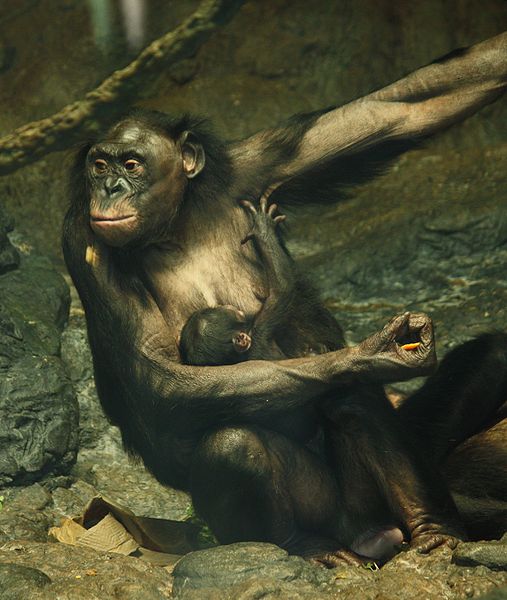
Photo by Ltshears, courtesy Wikimedia Commons
Sharing comes naturally to bonobos, the smallest of the chimpanzeelike apes. Their larger cousins, common chimpanzees, share naturally only in childhood. Human children have to be taught how to share. But bonobos apparently never learn how not to share.
In the paper in Current Biology, researchers from Harvard and Duke universities designed experiments to measure food-sharing and social inhibition among chimps and bonobos in African sanctuaries:
- Paired animals were put into an enclosure with food. Younger chimps behaved similarly to young bonobos in their willingness to share food. But as chimps matured, they became markedly less willing to share.
- Bonobos, given an opportunity to hog a food pile all to themselves, while a fellow bonobo watched from behind a gate, universally chose to open the gate and let their friend share—even if he or she wasn’t begging or asking.
Co-author Brian Hare told Duke University:
“A chimp would never voluntarily do that. Chimps will do things to help one another, but the one thing they will not do is share food.”
Bonobos continue to share like juveniles even in adulthood. This may be thanks to their habitat south of the Congo River, where an abundance of food allows them to maintain a cooperative gentleness throughout life. Unlike common chimps, bonobos don’t have to compete with gorillas for food. Nor do they compete with each other.
In effect, the researchers say, bonobos never have to grow up. Peter Pan. Pan paniscus.
Bonobos also enjoy life in a matriarchy. Chimps weather life in a patriarchy. Lucky bonobos.














